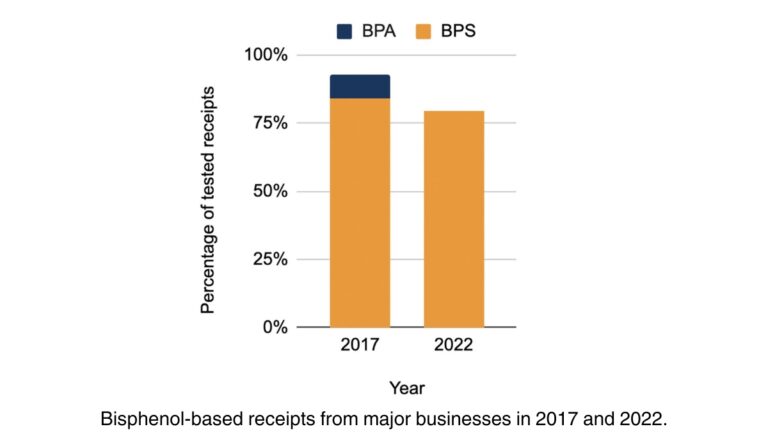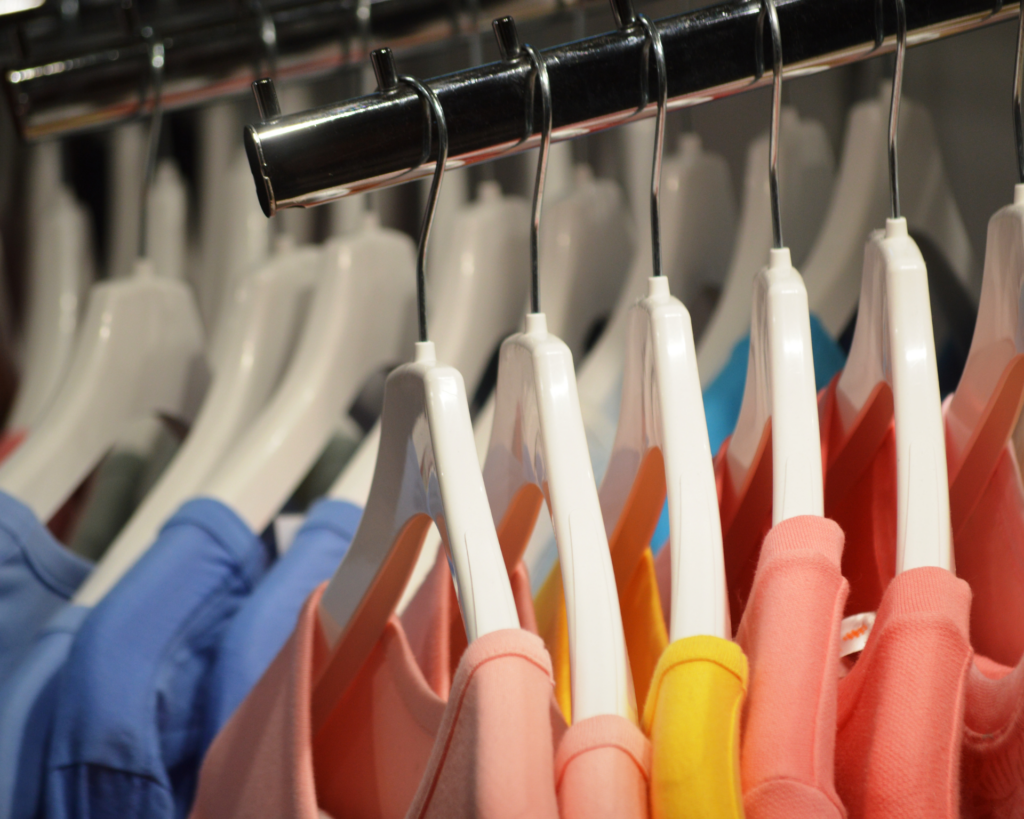Receipt in the Hot Seat
The use of receipts coated with bisphenols, which are toxic endocrine disruptors, has decreased since 2017, yet these harmful chemicals are still present on the majority of receipts handled every day.

Read Time: 2 minutes
Published:
Today, you will likely get a paper receipt. You might promptly throw it away or add it to a crumpled collection in your wallet. Either way, millions of Americans handle and touch receipts every day.
Receipts, however, aren’t regular paper. They are printed on thermal paper, which is often coated with the chemicals bisphenol A (BPA) or bisphenol S (BPS). The smooth and glossy veneer disguises the dangers of BPA and BPS, which are toxic endocrine disruptors. When you ingest or touch these chemicals, they can interfere with your body’s hormones, potentially increasing your risk of cancer. When handled by kids, teens, and pregnant people, BPA and BPS can also cause developmental problems.
Researchers from the Ecology Center’s Healthy Stuff Lab evaluated how often BPA and BPS are present in receipts. They tested hundreds of paper receipts from 144 major chain stores across the U.S. The list of stores includes names like Walmart, McDonalds, Dunkin Donuts, IKEA, Lowes, and the United States Postal Service.
Compared to a study in 2017, the same researchers found that receipts with BPA had all but disappeared, decreasing from 9% to just 0.3% in 2022. Out of concern over the toxicity of BPA, companies have begun replacing BPA with BPS in all kinds of consumer products.
However, BPS seems to be just as, if not more, harmful to our hormones and reproductive systems. Almost 80% of the receipts from these large U.S. retailers contained BPS, with only a slight decrease in use since 2017.
Receipts can be especially dangerous to cashiers. Compared to customers who might handle one or two receipts a day, cashiers may handle hundreds in a single shift. Previous studies have shown that workers who handle BPS-coated receipts have significantly higher BPS levels in their urine after clocking out.
Some companies like Costco, Walgreens, and Target have pledged not to use bisphenol-based receipts in their stores. The researchers suggest that more retailers should protect their customers, their workers, and their communities by shifting away from toxic receipts and going paperless or using non-toxic paper options.
So: would you like your receipt?
Databyte via Receipt Deceit: Toxic Chemicals in Receipt Paper. Ecology Center, 2023.



